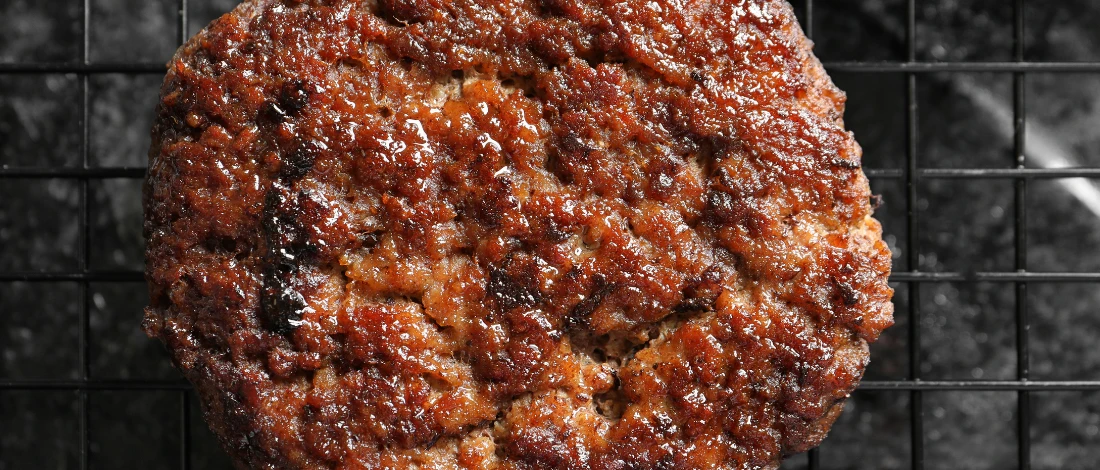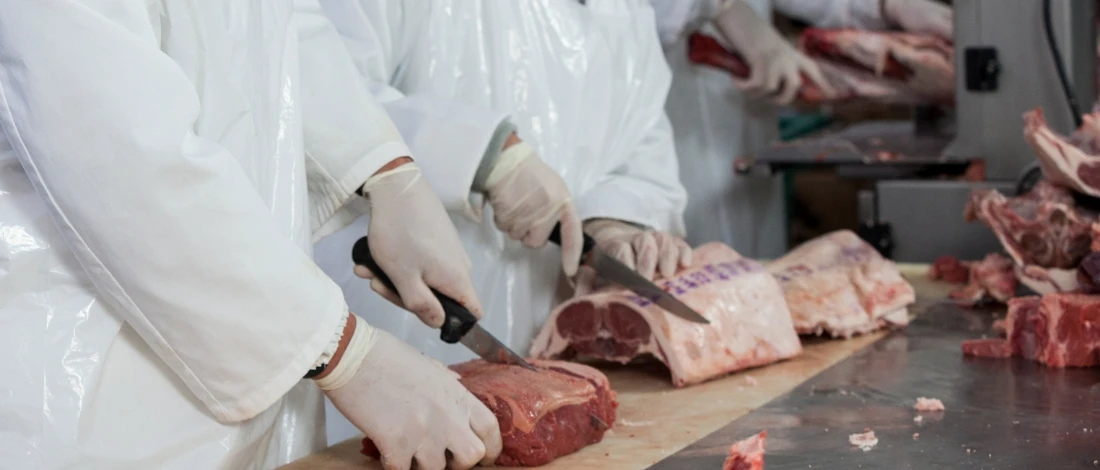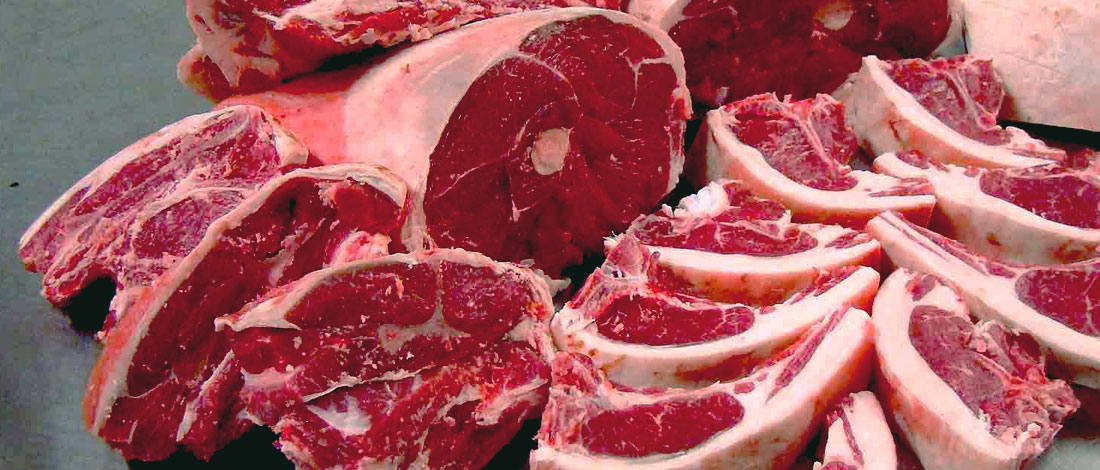Dietary restrictions are common among religious people, and the term "halal" refers to what Muslims can eat according to Islamic law.
The word "halal" comes from the Arabic word meaning "lawful" or "permissible." In reference to food, it means "permissible for human consumption." The opposite side of halal is "haram", meaning forbidden under Islamic law.
Because I believe the carnivore lifestyle should be fully accessible to those who follow Islam, I have researched what halal meat is and have written this article to provide some clarity.
Quick Summary
- "Halal" refers to food permissible for Muslims under Islamic law, with specific slaughtering procedures determining if meat is halal.
- The animal must be healthy and alive at slaughter, and the process involves a swift, deep incision across the animal's throat.
- The method of halal slaughter is controversial, with debates on its humaneness and the use of pre-slaughter stunning.
- If you're looking for halal meat delivered directly to your home, check out our roundup of the best options here.
What Makes Meat Halal?
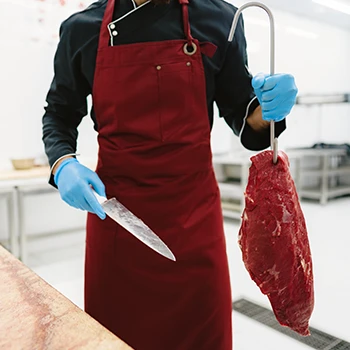
The way the animal is slaughtered makes meat halal. Halal meat has been slaughtered in the name of Allah according to Islamic dietary law, known as dhabihah or zabihah.
It includes poultry, beef, lamb, goat, and more. In addition to those halal meats, seafood of all types is generally considered halal.
It is essential to know that all pigs and pork products are considered haram, as is any meat from animals that were not slaughtered per dhabihah.
This means that pork is always prohibited when you are looking for halal food.
However, fish, chicken, beef, and other meat or animal by-products may be halal or non-halal.
It depends on how they were slaughtered. Any animals killed or chickens slaughtered by a non-Muslim or under Jewish law are haram and cannot be eaten.
Also Read: What Is Conch Meat About?

The Rules for Halal Meat

For meat to be halal, the animal must be healthy and alive at the time of slaughter.
A post-pubertal Muslim must perform the killing, saying "Bismillah" (in the name of God) before making a deep, swift incision with a sharp knife across the animal’s throat, cutting the jugular vein and carotid artery.
To be halal, the animal must die of exsanguination. Commonly, the animal is not handled for some time to allow all the blood to drain from its body.
Several other requirements must be met for meat to be considered halal, including:
- The halal animal must not be sick or suffering at the time of slaughter.
- The beast must not have been fed any non-halal products (e.g., alcohol, pork).
- The animal must not see the blade before slaughter.
- The animal's spinal cord should not be injured during the slaughter.
- The beast should not witness any other animals slaughtered.
- Only Allah's name should be mentioned while killing animals.
- After they have slaughtered the creature, the meat is prepared according to the law. This usually includes washing the carcass and removing any blood from it.
Controversies Over Halal Practices
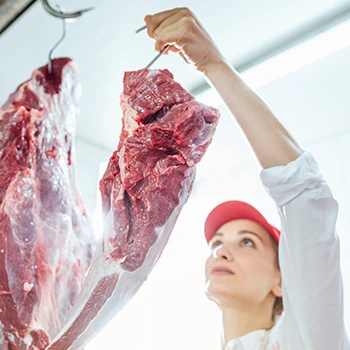
Recently, there has been some controversy over halal practices, specifically the method of slaughter.
Some animal rights activists argue that the dhabihah method of halal slaughter is cruel and inhumane because they believe the creature endures unnecessary suffering during and after the throat-cutting.
Traditional slaughterhouses use a bolt gun to stun or kill the creatures before slaughtering them, which many animal welfare activists and non-Muslims argue is a more humane way to get meat.
In fact, Britain's Royal Society for the Prevention of Cruelty to Animals (RSPCA) believes that the use of stunning before the killing is the only way to ensure that beasts do not experience avoidable suffering during slaughter [1].
However, many Muslims do not allow animals to be stunned before killing. They are concerned that this would kill the creature by a method other than exsanguination.
Even if the pre-stunning did not cause death, many Muslim scholars would argue that stunning the animal before slaughter is contrary to halal methods because it renders the creature unconscious and unable to respond to Allah's name being spoken during the killing.
As a result, there is a good deal of debate over whether halal slaughter is humane. In fact, the RSPCA advocates to ban religious slaughter entirely, including both halal and kosher meat.
"We acknowledge that religious beliefs and practices should be respected. However, all animals should be treated humanely at the time of killing and stunned before. We must prioritise ending animal suffering where it can be avoided. This doesn't mean a ban on religious meat is needed to ensure animals receive a more humane death."
- Royal Society for the Prevention of Cruelty to Animals
Many European Union countries require stunning before killing. Some member states grant exemptions for halal and kosher food, but others do not allow religion to influence their rules.
There is a little more consensus that non-lethal means of pain control, such as electrical stunning or electronarcosis, can be used on creatures before slaughter.
These do not kill the animal and thus are allowed, according to the Egyptian Fatwa Committee [2].
Supermarkets selling halal products may interpret religious law differently. The bottom line is that if you are looking for halal meat, you need to do your research to ensure that the meat you are eating has been readied according to halal principles.
Related Articles:
FAQs
What Are Other Halal Foods?
Other halal foods include vegetarian food such as vegetables, fruits, milk, legumes, nuts, seeds, and eggs. One caveat is that all of those are halal as long as they do not contain any haram ingredients.
Is Halal Food Better Than Regular Meat?
Some claim that halal food is better than regular meat. Generally, halal meat is raised in fresh air and pastures, without antibiotics and growth hormones, and fed a natural diet. Some people also argue that removing blood improves the meat's taste [3].
References:
- https://www.rspca.org.uk/getinvolved/campaign/slaughter
- https://www.animalsandsociety.org/wp-content/uploads/2016/05/salamano.pdf
- https://www.arabamerica.com/halal-meat-tastier-and-healthier-than-regular-meat/



